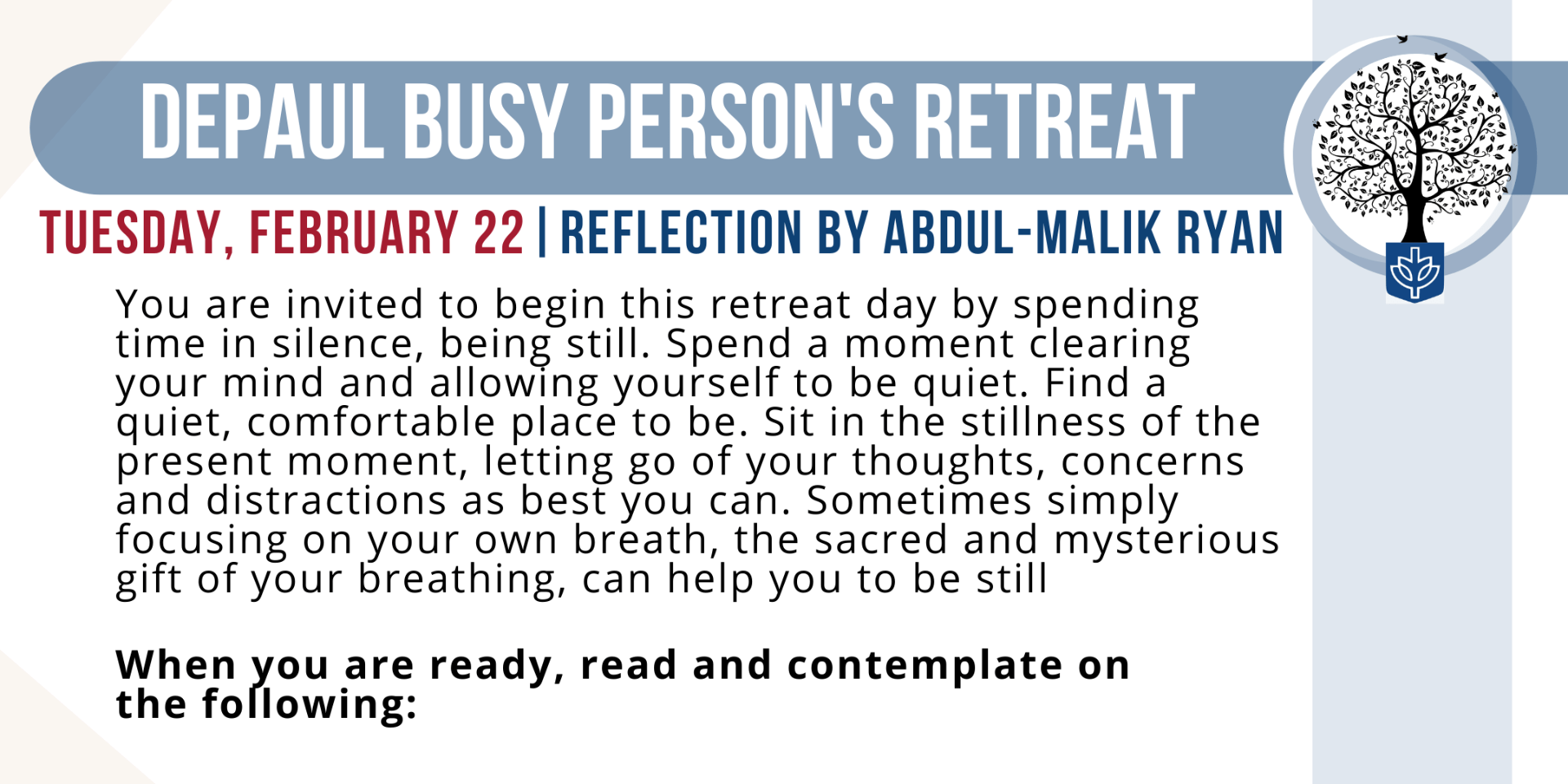

View or download an illustrated PDF of the reflection here.
There are many different ways in which we may feel ourselves to be busy, or to feel overwhelmed. We can feel overwhelmed by tasks that we are required or being asked to complete. Sometimes, however, our minds feel busy whether we are engaging in actions or not. This leaves us with a feeling that we have no peace in our hearts.
One way of looking at this is that we live in a time in which we are bombarded by information. We receive news continuously and instantaneously from around the world. Discussion and distraction of all types: political, entertainment, work related and of so many other types is literally always at our fingertips.
For some people prayer is a powerful way to bring increased serenity and inner peace. For others, related processes of naming what is one’s mind and heart can have some of the same benefits.
Agitation of many types, whether among people or internally in one’s heart can be a blessing. It can lead us to acknowledge a need for change, in unjust systems or in the brokenness of patterns and habits of our lives and relationships. Our Vincentian patrons were no strangers to this wisdom. Both Vincent and Louise experienced restlessness which called them to action and encouraged increased awareness in others believing it should lead to change. Certainly the Vincentian question “What must be done?” can be described as an agitational one.[1]
If we sometimes need to be provoked into action we must also be able to find peace. Finding peace can make us more effective in our work and make a source of calm and tranquility for those around us. This is profoundly reflected in many of our spiritual traditions ranging from Prophet Muhammad on the hijrah journey fleeing prosecution in Mecca hiding in a cave stating to his terrified companion “Do not fear or be sad, God is with us”[2] to the gospel story of Jesus calm amidst the storm on the sea and addressing his disciples “Why are you afraid? Have you still no faith?”[3]
Vincent and Louise also offer this advice strongly. For them, this tranquility could best be found in realizing humbly one’s own limitations along with one’s responsibility. We are responsible for our actions but we cannot feel responsible for what lies beyond our control or capacity. Through a faithful trust in the divine or transcendent or through an acknowledgement of reality, we seek to move to this place of inner peace, even where we experience chaos and especially while we remain engaged in actions. In this life, we cannot expect to reach this once and forever, but it is a condition to which we hope to return over and over again, when it is perhaps inevitably disrupted.
Pause for Reflection:
What are some sources of stress for me at this moment? What are the actions I can take to address these issues? What are some things in which I can trust and find security even in the midst of uncertainty?
Most of us are probably familiar with Reinhold Niebuhr’s Serenity Prayer.[4] This short prayer offers a powerful summary of some of the things we have mentioned in today’s reflection.
God, give me grace to accept with serenity
the things that cannot be changed,
Courage to change the things
which should be changed,
and the Wisdom to distinguish
the one from the other.
[1] Even more so when the question is understood in its fullness as necessarily containing the specific questions “What must I do? What must you do? What must we do?” See Udovic, Edward R. C.M., Ph.D. (2008) “”Our good will and honest efforts.” Vincentian Perspectives on Poverty Reduction Efforts,” Vincentian Heritage Journal: Vol. 28 : Iss. 2 , Article 5.
[2] Qur’an 9:40
[3] Matthew 8:23–27, Mark 4:35–41, and Luke 8:22–25
[4] Niebuhr went through several different versions of the prayer over his life, and it has been adopted and repurposed with slight changes by many over time but the basic spirit of it seems to be shared by all.